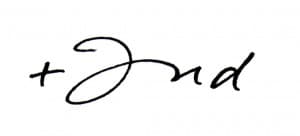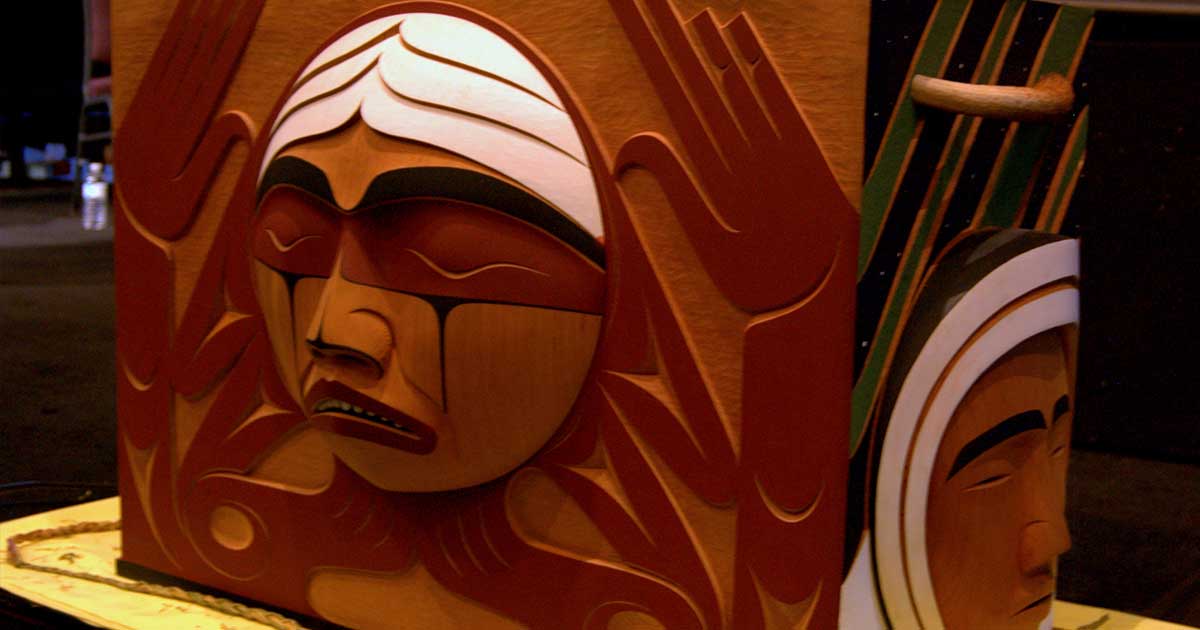What follows is a statement from Archbishop Fred Hiltz, responding to the Truth and Reconciliation Commission Call to Action # 48 on behalf to the Anglican Church of Canada. The response was presented at Her Majesty’s Royal Chapel of the Mohawks, Six Nations of the Grand River on Saturday, March 19, 2016.
Let our “yes” be yes
(Based on James 5:12)
In response to Call to Action #48 from Canada’s Truth and Reconciliation Commission, I speak today on behalf of the Anglican Church of Canada.
My heart is heavy with the burden of our many sins against the Indigenous Peoples throughout Turtle Island. For every way in which we insulted their dignity and took their lands, silenced their languages and suppressed their culture, tore apart their families and assaulted their children, I must never weary of saying on behalf of our church, “I am sorry”.
My heart is humbled by the call to honour – in word and action – the UN Declaration of the Rights of Indigenous Peoples.
With many others, my heart yearns for that future in which – in the sight of the Creator – we are walking together in ways that are good and holy, right and just for all.
Contemplating what I would say today and how I might say it, I found myself drawn to the Letter of James and his word of counsel, encouraging the church of his day to be steadfast in its witness to the Gospel. This strikes me as good counsel for the church of our day, as it seeks to act on decisions made at General Synod 2010 repudiating the Doctrine of Discovery and endorsing the UN Declaration on the Rights of Indigenous Peoples. Here we have a call to let our “yes” in that historic moment be a resounding and continuing “yes”.
In renouncing the Doctrine of Discovery that drove colonial expansion – regarding “discovered lands” as empty lands; and treating the First Peoples of the land as savages to be conquered, civilized, and Christianized, our church described that doctrine “as fundamentally opposed to the gospel of Christ and our understanding of the inherent rights that individuals and peoples have received from God”[1].
I remain deeply committed to enabling our church to let its “yes” in repudiating the Doctrine of Discovery be a resounding and continuing “yes”.
While much has been written about this doctrine, it is clear there is much more education required if we are to understand the political and spiritual arrogance inherent in it, and the force with which it was upheld through strategies aimed at systemic cultural genocide. In Canada, the so-called “Indian problem” was addressed through federal policies of assimilation, forced confinement in Residential Schools established by the Government and run by the churches. History has revealed how flawed this policy was, how horrific the experience of some 150,000 aboriginal children and how lasting the impact of so much loss in their lives – loss of identity, language, and culture; loss of community and learning the ways of their ancestors, loss of “their own spiritual and religious traditions, customs and ceremonies”; loss of their dignity through assault of every kind – emotional, physical, and sexual; and perhaps most profoundly of all the many years of lost love “for the child taken and for the parent left behind”.
I call on every diocese and territory of our church to ensure opportunity for learning about the history and lingering legacy of this doctrine. I commend the growing practise of beginning meetings synods and assemblies with an acknowledgement of the traditional territories and lands on which we gather and an expression of thanks. I commend resources produced by the Anglican Council of Indigenous Peoples and the Primate’s Commission on Discovery, Reconciliation and Justice. I also commend the highly participatory Blanket Exercise designed by KAIROS, and the Mapping Exercise designed by the Primate’s World Relief and Development Fund (PWRDF) and the Anglican Fund for Healing and Reconciliation.
It would be an oversight not to remember also that in the General Synod Resolution of 2010, there was a clause requesting her Majesty, Queen Elizabeth II “to disavow and repudiate publicly, the claimed validity of the Christian Doctrine of Discovery”. That request was formally acknowledged and the matter referred for consideration by the Secretary of State for Foreign and Commonwealth Affairs. My hope is that there be a response in time for the commemorations marking the 150th Anniversary of Confederation next year. I am therefore requesting the General Secretary to write a letter of encouragement to that effect.
In the same session of General Synod that our church repudiated the Doctrine of Discovery, we also endorsed the UN Declaration on the Rights of Indigenous Peoples. Six years later, we are challenged by Call to Action #48 to declare a plan for how we will implement that Declaration.
By way of introduction, I reference the counsel given me by the Primate’s Commission on Discovery, Reconciliation and Justice. It reads as follows:
UNDRIP must be approached and applied with a set of expectations that will inform strategy, process, and practice…There must be time for teaching and reflection that demonstrates those connections – guided by direct input from Indigenous People. …We will need to have a gradual acceptance and acknowledgement that Church institutions and members were involved in serious violations of UNDRIP and core Christian teaching over a number of centuries. The process of compliance to Call to Action #48 should be strategically planned to be progressive, on-going and reflective.
Mindful of this counsel, I believe the full text of the UN Declaration on the Rights of Indigenous Peoples should be included in the Handbook of the General Synod and regarded as a guiding document in our relationship with Indigenous Peoples.
I am requesting that on National Aboriginal Day, June 21 or the Sunday closest there be a public reading of the UN Declaration on the Rights of Indigenous Peoples in every parish across Canada. This should be accompanied by appropriate prayers and ceremonies in keeping with Indigenous spiritual customs.
I am calling for reference to this Declaration, among others issued by the United Nations, to be included in programs of preparation of candidates for baptism and confirmation in our church, in keeping with our vows “to strive for justice and peace among all people”. The Rev. Riscylla Walsh Shaw of Bolton, Ontario is developing such a program and it promises to be a very good resource. I am recommending that the UN Declaration be the subject of learning for education days in parish settings, deanery gatherings, diocesan synods and national councils of our church.
I also call on our church in every circle of its life and work to an unwavering commitment to anti-racism training, in the spirit of equipping all of us to honour our baptismal vow “to respect the dignity of every human being”.
A key resource for setting the United Nations Declaration in both an historic and a present-day context is the timeline entitled “Indigenous Peoples and the Anglican Church in Canada: Timeline of an Evolving Relationship”. It is the inspired work of Esther Wesley, the Coordinator of the Anglican Fund for Healing and Reconciliation, in cooperation with the General Synod Archives, Indigenous Ministries, Public Witness for Social Ecological Justice, and Communications.
I intend to hold the United Nations Declaration before the bishops of the Anglican Church of Canada. By virtue of their office they are a unique position to help us honour one of the clauses in the General Synod Resolution to endorse the UN Declaration, that is “to encourage dioceses and parishes to urge their municipalities, provinces and territories to endorse the Declaration”. I will be inviting the bishops to share initiatives in this regard at our meeting this fall.
In the interest of building genuine partnerships, I have issued a call for a special joint meeting of the Council of General Synod and the Anglican Council of Indigenous Peoples within the next year. We are learning that genuine partnership depends on knowing one another at greater depth.
Our National Indigenous Anglican Bishop has written, “while each of the articles of the Declaration is important, the guiding thread is the right to self-determination…The Anglican Church of Canada has had moments where, coming close to such a recognition, there have been steps forward towards realizing a new relationship within this understanding…Fully complying with the UN Declaration will mean more consistent and genuine progress toward lasting self-determination for the Indigenous church, in such a way that can nurture creative relationships of equity and mutuality across the whole church.” I think Bishop Mark MacDonald is calling our church to let its “yes” be a resounding and continuing “yes”.
Along with the General Synod, two other national ministries associated with the Anglican Church of Canada are also deeply committed to the UN Declaration. One is the Anglican Foundation of Canada, which is inviting proposals for funding for community-based projects aligning with the TRC Calls to Action. The other is the Primate’s World Relief and Development Fund and its commitment – enshrined in its 2015-2018 Strategic Plan – to deepen relationships with First Nations, Métis and Inuit Peoples.
The Anglican Church of Canada has a long history of association with KAIROS and its commitment to Indigenous Rights. In 1987, we signed “A New Covenant”, an ecumenical pastoral statement that was based on the principles, norms and standards now lifted up in the UN Declaration. Today, through KAIROS the commitment is shifting to working with Indigenous Peoples to better reflect a nation-to-nation relationship.
I draw this statement to a close with an announcement. In consultation with the National Indigenous Bishop and the General Secretary, I will establish a Council of Elders and Youth to monitor our church’s honouring in word and action our church’s commitment “to formally adopt and comply with the principles, norms and standards of the UN Declaration on the Rights of Indigenous Peoples”. It is my intention to commission this Council for its work on Sunday, July 10 at General Synod 2016.
The last word in this statement is appropriately that of our National Indigenous Anglican Bishop. He writes “may the UN Declaration be our prayer, dedication and discipline in the coming years. Perhaps, our new Covenant”. I heartily concur. His word speaks to the patience and perseverance we will need in making the Anglican Church of Canada’s “yes” to the UN Declaration a resounding and continuing “yes” for all time.

The Most Rev. Fred Hiltz
Primate, The Anglican Church of Canada
[1] General Synod, 2010, http://archive.anglican.ca/gs2010/resolutions/a086/
Interested in keeping up-to-date on news, opinion, events and resources from the Anglican Church of Canada? Sign up for our email alerts .

